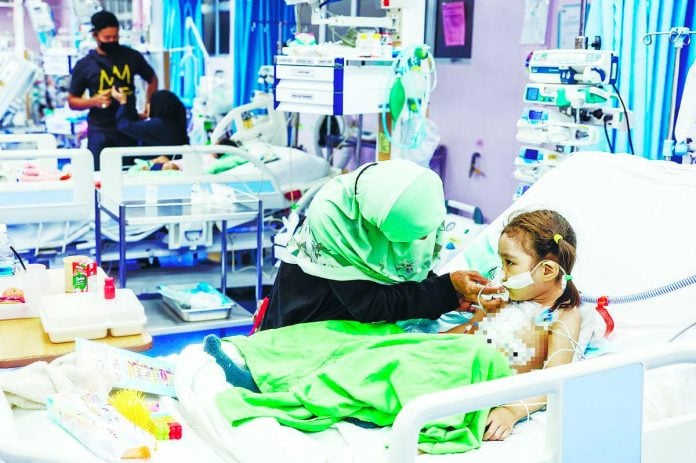HEALTH Minister Datuk Seri Dr Dzulkefly Ahmad recently revealed that 2,293 patients are currently waiting for cardiothoracic surgery in government hospitals, with some having to wait for up to seven months.
For children’s heart surgeries, the situation is even more worrisome, with 603 cases on the waiting list and an average wait time of 21 months.
These are not just cold, lifeless statistics. Behind every number is a human story. We all know this truth: While a patient can wait, a heart condition does not.
This serious backlog in cardiothoracic surgery is not just an operational hiccup; it is a sign of something deeply wrong with the structure of our national healthcare system.
As a cardiologist myself, I must stress that heart and lung conditions do not improve by simply waiting.
For many patients, time is literally a matter of life. The longer the delay, the more complicated the condition becomes and the riskier the surgery. Worse still, if treatment is delayed too long, we risk missing the critical window to save a life.
Why are patients waiting so long?
Such large-scale, systemic surgical delays are not isolated incidents in a few hospitals. They are a clear manifestation of structural imbalance within the national healthcare system which urgently needs fixing.
Not enough specialists
Public hospitals have been short on cardiothoracic specialists for years. Due to the instability of the contract system, many doctors have left for private hospitals or gone overseas. That leaves the rest struggling to keep up with hundreds of cases. One doctor with two hands can only do so much – they cannot handle it all.
Unequal access to facilities
Heart surgery facilities are concentrated in only a few major city hospitals. That means patients in East Malaysia or remote areas are at a serious disadvantage. Some hospitals cannot even offer heart surgery, so patients have to be referred to city hospitals, where they are put on long waiting lists. It is an unfair system where location decides your chances of survival.
Wrong priorities in healthcare planning
While the government has been increasing the healthcare budget every year, its focus has mainly been on constructing new or upgrading existing hospitals and buying equipment.
We are not doing enough to keep specialists, enhance training or improve how we coordinate surgeries and resources.
The system may look big but it is not functioning the way it should. It is like a body with a swollen frame but a weak heart.
What about children?
This is where the situation becomes truly heartbreaking. A 21-month wait for a child with heart disease is nearly their entire early childhood.
Many congenital heart defects need to be treated during key growth stages. Missing that window could mean missing the chance to grow up healthy.
Imagine being a parent, sitting by your child’s hospital bed every day, only to hear the doctor say, “We need to wait a bit longer”. That is not a failure of the medical team; it is a failure of the system. And it is more brutal than the illness itself.
These are five urgent measures the Health Ministry can undertake:
Use special emergency funds to clear surgery backlog
Just like during the pandemic, set up a “Special Cardiothoracic Surgery Fund”. Bring in private hospitals or university medical centres to help reduce the waiting list. Lives should never be held up by bureaucracy.
Launch short-term overseas specialist programme
Bring in certified foreign cardiothoracic surgeons to work in government hospitals for two to three years. Let them collaborate with local teams to speed things up and share expertise.
Create national scheduling and coordination system
We need a proper central platform that tracks all surgery cases and helps balance the workload across hospitals. This can stop situations where some hospitals are overloaded while others sit underutilised.
Train more specialists
This is a demanding and often overlooked specialty. The government should offer scholarships, reduce compulsory service periods and improve training support to attract more doctors. If we do not act now, even our senior trainers will retire without successors.
Fix doctor retention problem
In the long run, we must reform the contract system, improve salaries and offer a better work environment. If we do not, the shortage of doctors will keep getting worse, not just in heart surgery but across the entire healthcare system.
Malaysia must not become a country where patients cannot afford to wait and doctors cannot afford to stay.
Every delayed operation is not just another line item on the Health Ministry’s KPI; it is a family’s future hanging in the balance. We cannot keep blaming “system limitations” when lives are on the line. If reforms are slow and the response continues to lag, we will not only lose patients but also the people’s trust in public healthcare.
Datuk Dr Mah Hang Soon is the MCA deputy president.
Comments: letters@thesundaily.com








